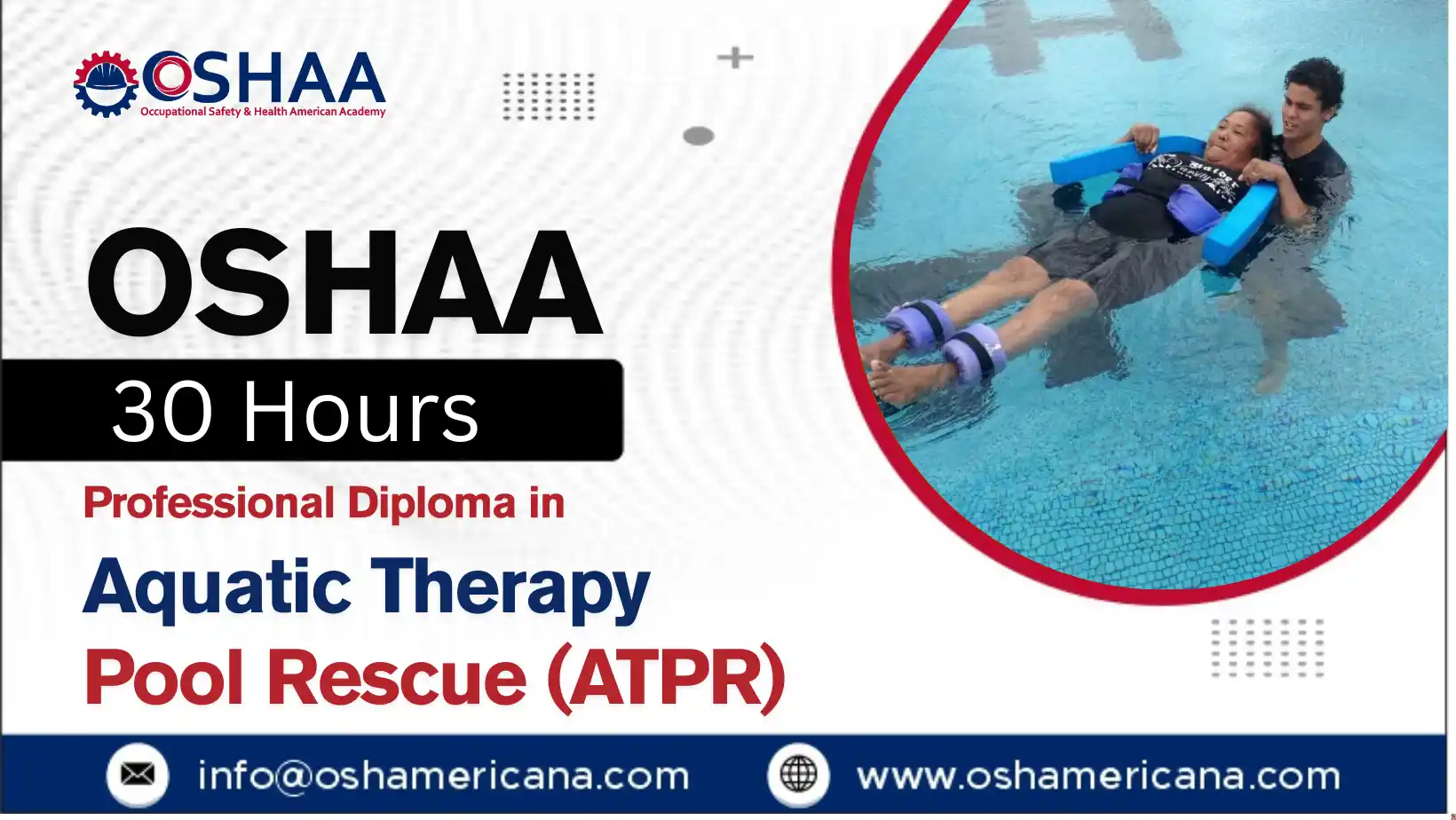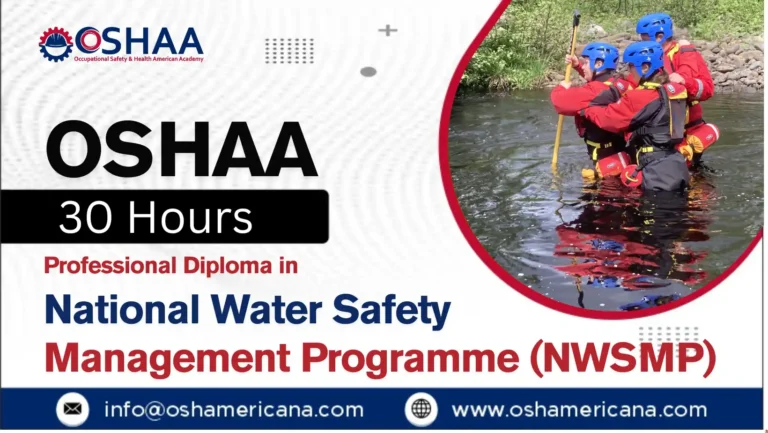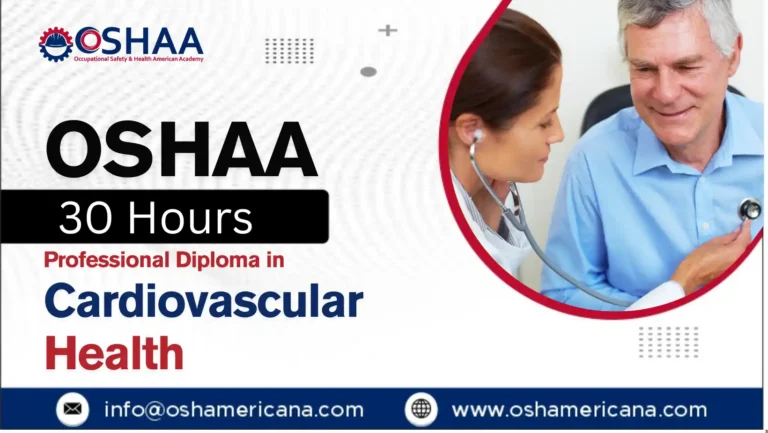The OSHAA 30-Hours Professional Diploma in Aquatic Therapy Pool Rescue (ATPR) is a specialised training programme designed to equip participants with the essential skills and knowledge required for effective rescue operations within aquatic therapy settings. Awarded by OSHAA, this diploma addresses the unique challenges and safety considerations of therapeutic pools, ensuring participants can confidently manage emergencies while supporting the wellbeing of clients undergoing aquatic therapy.
Participants will engage in a comprehensive curriculum that blends theoretical understanding with practical skills. The course covers vital topics such as risk assessment, aquatic rescue techniques tailored for therapy pools, casualty assessment, spinal injury management, and emergency response protocols specific to therapeutic environments. Emphasis is placed on maintaining a safe and supportive atmosphere conducive to therapy while ensuring rapid and effective rescue actions when needed.
Through hands-on training, participants will develop the ability to identify potential hazards in aquatic therapy settings and apply prevention strategies to minimise risks. The programme also focuses on communication skills, teamwork, and coordination with healthcare professionals and emergency services, ensuring a holistic approach to safety management.
Ideal for professionals working in aquatic therapy centres, rehabilitation facilities, or healthcare settings, the OSHAA 30-Hours Professional Diploma in Aquatic Therapy Pool Rescue (ATPR) enhances participants’ competence and confidence in handling poolside emergencies. This qualification supports career progression and demonstrates a commitment to the highest standards of safety in therapeutic aquatic environments.
Upon completion, participants will be proficient in executing safe and effective rescue operations tailored to aquatic therapy pools, contributing significantly to client safety and the overall quality of care. This diploma serves as a valuable asset for those dedicated to combining therapeutic practice with rigorous safety protocols.
OSHAA 30-Hours Professional Diploma in Aquatic Therapy Pool Rescue (ATPR)
Study Units
Learning Outcomes
Introduction to Aquatic Therapy Pool Rescue and Roles (3 Hours)
- Understand the role and responsibilities of rescuers in aquatic therapy settings
- Recognise the importance of specialised rescue approaches for therapy pools
- Identify key safety priorities in aquatic therapy environments
Understanding Aquatic Therapy Environments and Safety Considerations (3 Hours)
- Describe the unique characteristics of aquatic therapy pools
- Recognise safety challenges specific to therapeutic aquatic environments
- Implement measures to ensure a safe setting for both clients and staff
Risk Assessment and Hazard Prevention in Therapy Pools (3 Hours)
- Conduct comprehensive risk assessments tailored to aquatic therapy pools
- Identify common hazards and implement effective prevention strategies
- Develop safety protocols to minimise risks in therapy pool operations
Rescue Equipment and Techniques Specific to Aquatic Therapy (4 Hours)
- Identify specialised rescue equipment used in aquatic therapy settings
- Demonstrate appropriate rescue techniques adapted for therapy pools
- Ensure safe and effective use and maintenance of rescue equipment
Casualty Assessment and Immediate Response in Therapeutic Settings (3 Hours)
- Perform rapid and accurate casualty assessments within therapy pool contexts
- Apply immediate response techniques appropriate for therapeutic clients
- Prioritise actions to stabilise casualties before advanced medical assistance
Spinal Injury Recognition and Management in Aquatic Therapy Pools (4 Hours)
- Recognise signs and symptoms of spinal injuries in therapy pool emergencies
- Apply safe spinal injury management and rescue procedures
- Minimise further injury risk during casualty handling and extraction
Emergency Action Planning and Incident Management (3 Hours)
- Develop effective emergency action plans tailored for therapy pools
- Manage incidents efficiently using structured protocols
- Coordinate responses to minimise impact and ensure safety
Communication and Coordination with Healthcare Professionals (3 Hours)
- Use clear communication methods during rescue and emergency situations
- Collaborate effectively with healthcare staff and emergency responders
- Facilitate smooth handover and care continuity post-rescue
Post-Rescue Care, Documentation, and Reflection (2 Hours)
- Provide appropriate post-rescue care to clients in therapy pools
- Complete accurate incident documentation and reporting
- Reflect on rescue incidents to identify areas for improvement
Quality Assurance and Continuous Improvement in Aquatic Therapy Safety (2 Hours)
- Implement quality assurance practices in aquatic therapy safety management
- Monitor and evaluate safety protocols for effectiveness
- Promote continuous improvement through feedback and professional development
- Equips participants with specialised rescue skills tailored for aquatic therapy pool environments
- Enhances ability to identify and manage unique risks associated with therapy pools
- Develops confidence in using rescue techniques adapted to therapeutic settings
- Improves casualty assessment and immediate response specific to aquatic therapy clients
- Strengthens knowledge of spinal injury recognition and safe management in therapy pools
- Fosters effective communication and coordination with healthcare professionals during emergencies
- Supports compliance with legal, ethical, and quality assurance standards in aquatic therapy safety
- Provides practical training for emergency action planning and incident management
- Encourages reflective practice and continuous improvement in safety procedures
- Awards a recognised qualification that enhances professional credibility and career progression in aquatic therapy and safety roles
- Participants working as aquatic therapists or poolside staff in therapeutic aquatic environments
- Healthcare professionals involved in aquatic therapy and rehabilitation settings
- Participants responsible for safety and emergency response in therapy pools
- Individuals seeking specialised rescue skills tailored to aquatic therapy contexts
- Participants aiming to enhance their qualifications and expertise in aquatic safety and rescue
- Professionals committed to maintaining high safety standards in therapeutic aquatic facilities
- Those looking to advance their careers in aquatic therapy, pool management, or healthcare-related aquatic services







